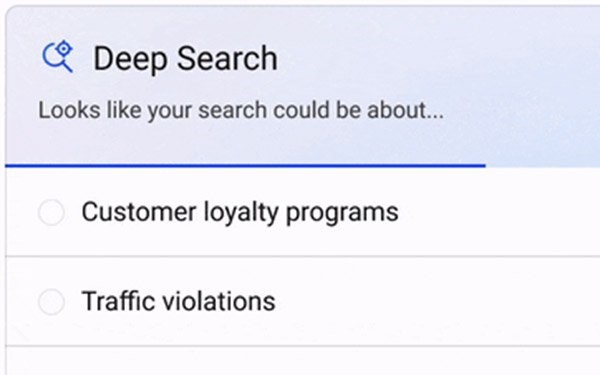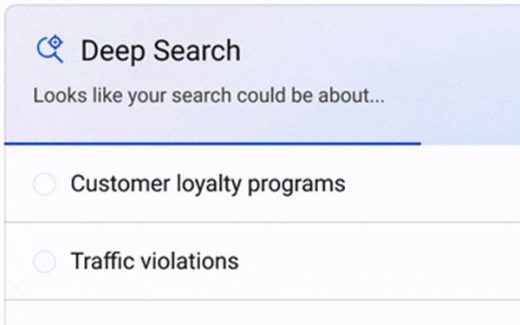Microsoft Deep Search Analyzes Complex Questions
Microsoft Deep Search Analyzes Complex Questions

Microsoft on Tuesday announced an optional generative AI feature that is intended to help people searching on complex questions that don’t have simple answers.
Deep Search builds on Bing’s existing web index and ranking system, powered by GPT-4, a state-of-the-art GAI Large Language Model (LLM)) that can create natural language text from any input.
In the case of Deep Search, GPT-4 takes the search query and expands it into a more comprehensive description of what an ideal set of results should include.
Microsoft uses a combination of techniques to surface results that typically would not appear in search results.
Microsoft, for example, suggested to research loyalty programs in different countries and search for “how do points systems work in Japan.”
Deep Search might generate a more comprehensive description: “Provide an explanation of how various loyalty card programs work in Japan, including the benefits, requirements, and limitations of each. Include examples of popular loyalty cards from different categories, such as convenience stores, supermarkets, and restaurants. Show a comparison of the advantages and disadvantages of using loyalty cards versus other payment methods in Japan, including current rewards and benefits. Highlight the most popular services and participating merchants.”
Microsoft believes theexpanded description captures the person’s intent and expectations more accurately and clearly than a few keywords, and helps Bing understand the kind of information the person looks for.
Deep Search might also try searching for:
One caveat: Deep Search will take longer to return queries — up to thirty seconds to complete. This might seem like a long time compared with normal search, but I’m pretty sure Microsoft is working on increasing the speed.
Microsoft did reveal that Deep Search is part of its announcement about Copilot’s support for OpenAI’s GPT-Turbo model. Calling it an experiment, Deep Search is only available to a small group of users.
(13)


